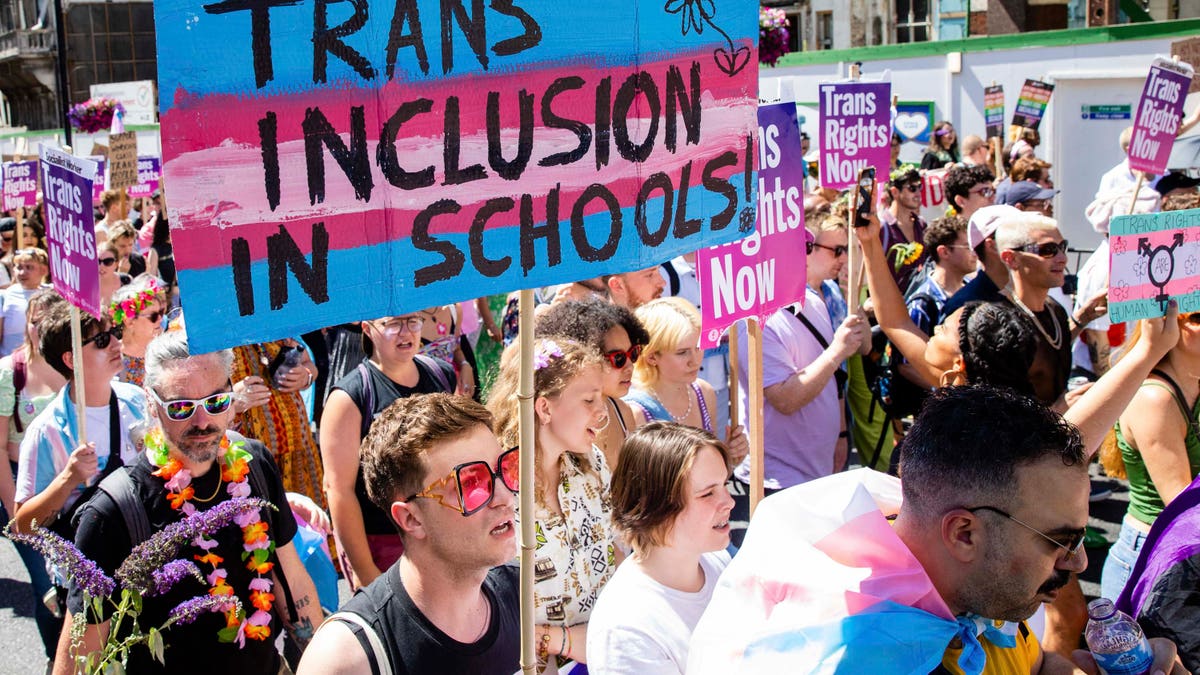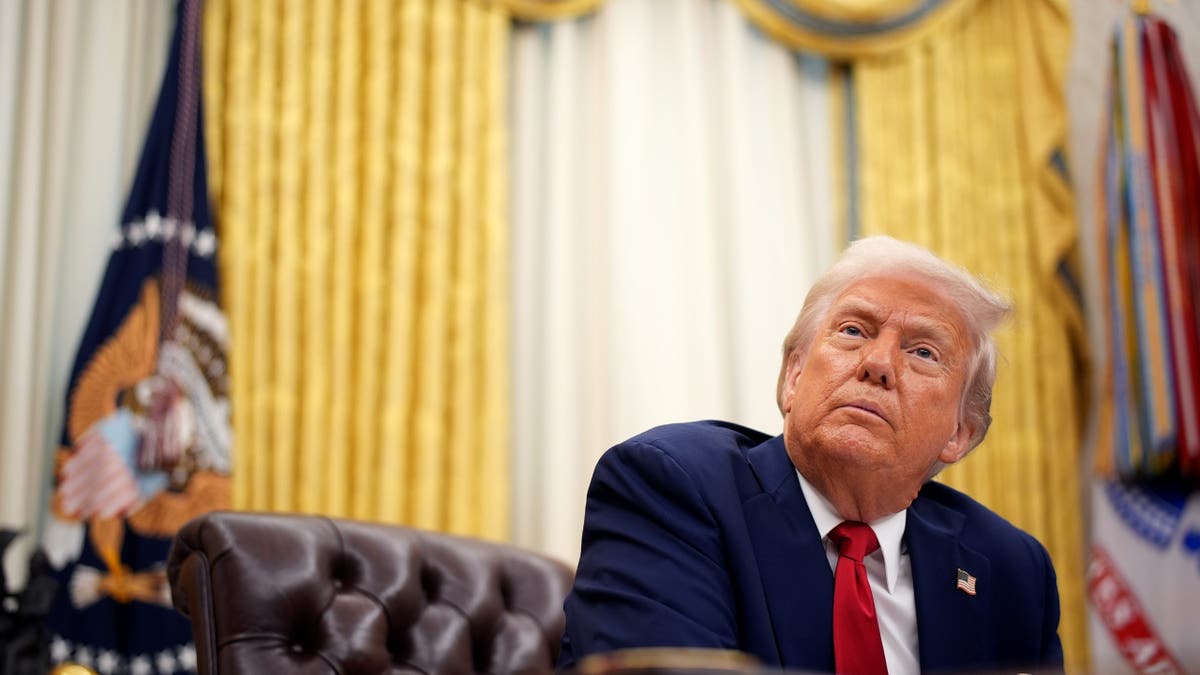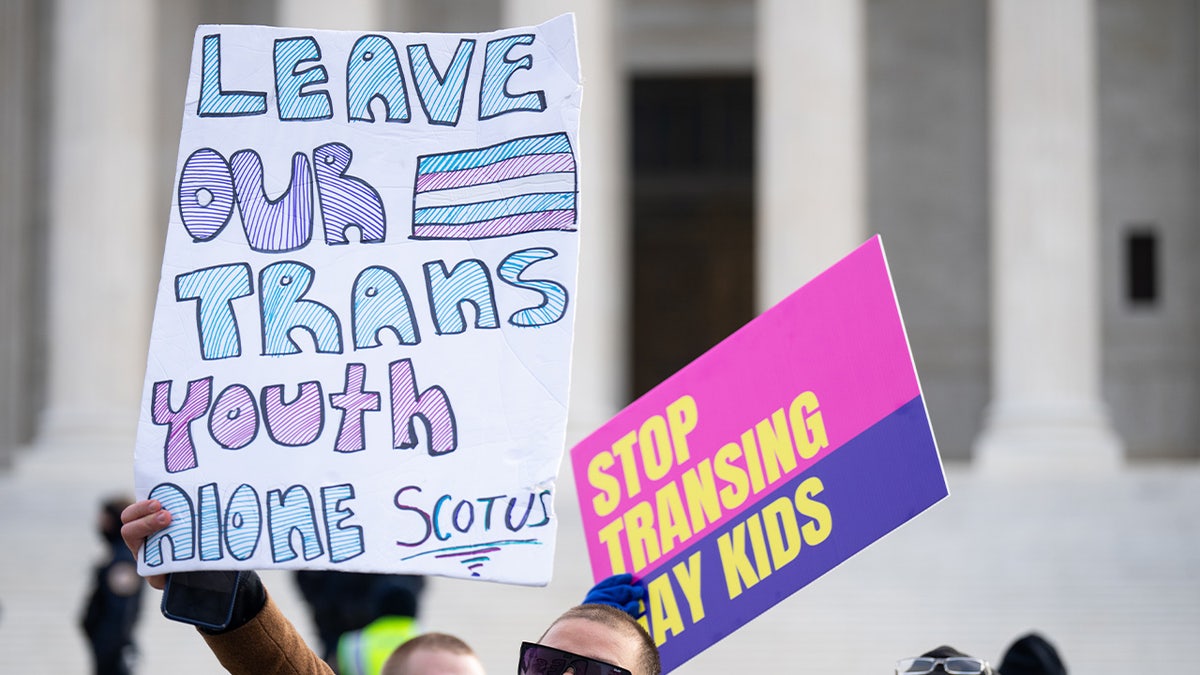INTERNACIONAL
Legalized same-sex marriage turns 10 after landmark Supreme Court decision reshaped American law and culture
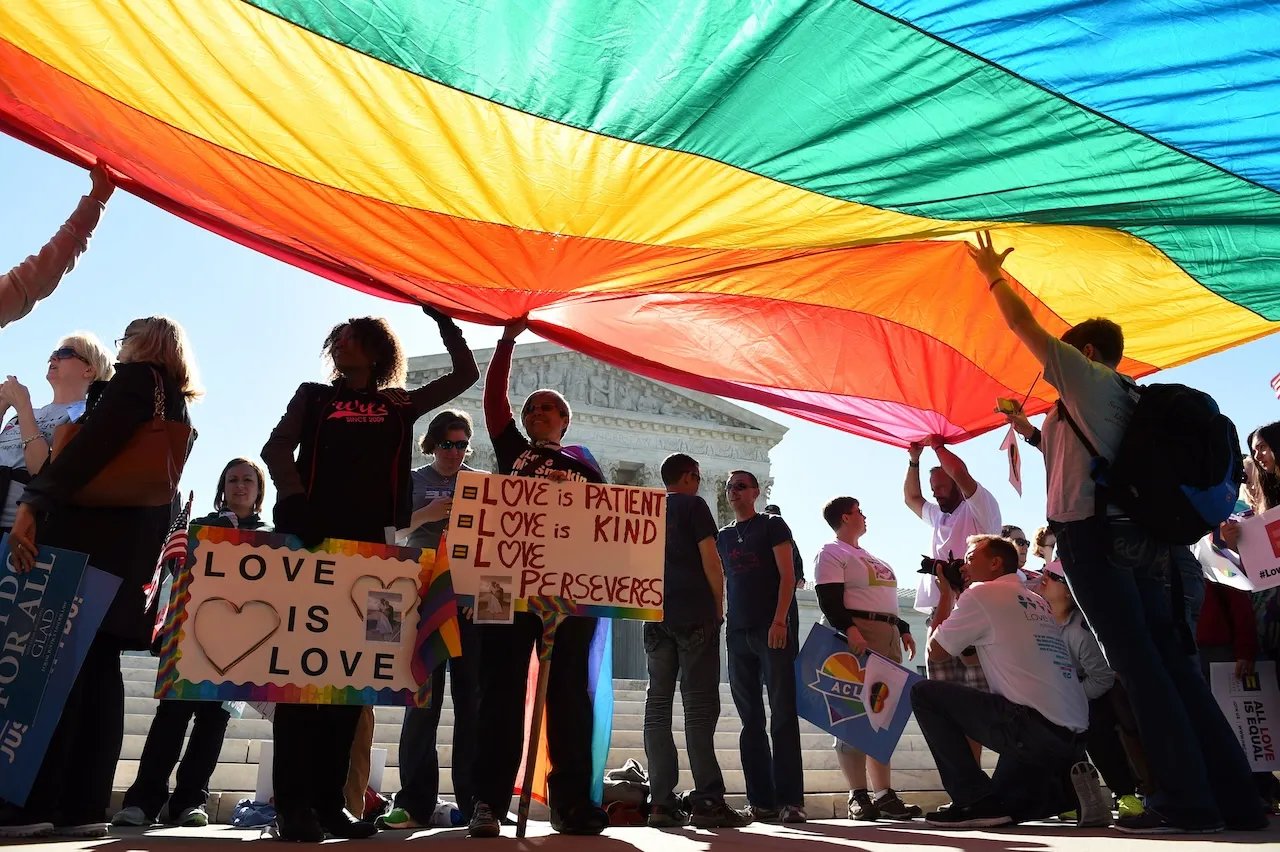
NEWYou can now listen to Fox News articles!
The Supreme Court 10 years ago voted to extend the definition of marriage to include same-sex couples, a landmark 5-4 ruling that changed the course of U.S. history — touching off profound changes in public opinion, as well as seismic cultural shifts.
«No longer may this liberty be denied,» Supreme Court Justice Anthony Kennedy wrote for the majority. «The court now holds that same-sex couples may exercise the fundamental right to marry.»
The June 2015 decision in Obergefell v. Hodges ensured same-sex couples were guaranteed the same protections and benefits as their heterosexual peers.
However, the ruling is not without its detractors. In fact, 10 years after the high court’s decision, recent polling shows that public opinion on same-sex marriage is more divided than ever.
GORSUCH, ROBERTS SIDE WITH LEFT-LEANING SUPREME COURT JUSTICES IN IMMIGRATION RULING
Plaintiffs in the Obergefell v. Hodges case are seen outside the Supreme Court in 2015. Ten years later, in 2025, there is still widespread public support for the Supreme Court ruling. (Ken Cedeno/ Corbis via Getty Images)
The 10-year anniversary of Obergefell also comes at a tense political moment. The White House and Congress are governed, as of January 2025, by a new conservative majority — sidelining progressives and emboldening at least some Republican lawmakers who have signaled interest in challenging the Supreme Court’s landmark decision.
It also comes as the conservative-majority Supreme Court has taken up important cases involving LGBTQ+ eduction, gender-related care and more.
Ten years after the court’s landmark decision, here is a look at where things stand.
Public opinion
The nationwide legalization of same-sex marriage has made such unions more visible, increasing the number of Americans with personal connections to couples directly affected by the Supreme Court’s ruling.
INTERNACIONAL
Lecturas para el fin de semana: cómo radicalizar el dolor

Habitar el dolor ajeno. ¿Es posible? Tomarlo con las manos, acobijarlo en el pecho, compungirse hasta el llanto, concentrarse en su textura, no dejarlo ir. La empatía trafica esa idea, pero, como escribió Alexandra Kohan, “no podemos entrar los dos en los zapatos de uno”. El otro es el otro y, en tanto otredad, es inquietante, imposible. En ese sentido, la literatura abre una posibilidad en el espacio, la de sumergirse en una narración ficcional que, al ser un artificio, radicaliza al extremo la emoción.
En algún punto, la lectura es un vacío. Un lugar sin notificaciones ni publicidad ni imágenes identificables. Esa zona donde el lenguaje imagina la pureza. Y si entendemos que la ficción no es un sinónimo de la mentira, sino una forma de contar la verdad, el lector se permite algo imposible: habitar el dolor ajeno. Porque el dolor está en el pecho de los personajes, en la atmósfera de las escenas, en la prosa, en la trama, pero no en él, que está del otro lado, ¿a salvo? Quizás ocurra exactamente lo contrario.
“Fijate, ¿lo llegás a ver? Casi no se ve, pero ¿no te parece asombroso ese alerce solo ahí, altísimo, resaltado en la llanura? Hasta tiene el tupé de competirle el protagonismo al horizonte». Un padre con una enfermedad avanzada y su hija viajan en auto hasta Buenos Aires: se tiene que hacer un estudio. Pero se detienen en un pueblo, en una casa, alguien familiar. Él fuma, ella lo reta. “¿Cómo no fotografiarlo?“, dice mirando el árbol, él que es fotógrafo. “¿Sin luz?”, pregunta ella. “Mañana, si se despeja (…) Es la última”.

La luz queda se llama la novela que acaba de publicar Diotima. Su autor es Alejandro Pereyra, escritor, guionista, director de cine. Es brevísima y la narración se agolpa en las páginas, no con apuro, sino con intensidad. “Voy a dejar la fotografía, Romina, antes de que ella me deje a mí“. Cuando ella le pide ”no te pongas trágico», que “va a salir todo bien”, él le dice: “No entendés, Romina. No es por mi cuerpo, por esa mierda que tengo. Solo que esta foto es el punto final perfecto. La vengo pensando hace tiempo”.
Después la literatura hace su trabajo: aparecen otras voces, el paisaje se vuelve una inundación, los pensamientos flotan y las intenciones vuelan. De pronto, “todo es de verdad, hasta la dulzura de mierda”. Y Arturo, el padre, el fotógrafo, sueña con otra foto, pero no es tan fácil. “Los días son todos diferentes” pero “la noche es siempre la misma”. Y la historia va cerrándose, la enfermedad no cesa, y “ya casi no se aguanta el dolor. Pero estate tranquilo, que siempre se trató de amor. Aunque no lo entiendan”.
Cuando Marie-Pier Lafontaine entendió que solo había dos opciones, escribir o prender fuego la casa familiar, escupió Perra. Son ochenta y pico de páginas intensas que narran una dura historia de abuso. Cuando estuvo fuera de esa cárcel de anhelos reventados, el testimonio se hizo literatura. Pero lo novedoso de este libro de 2020 y traducido el año pasado por Agustina Blanco para Ediciones Godot no es este acontecimiento —¿cuántos víctimas han podido narrar sus tragedias en libros?—, sino la mirada.
“Entre todas las leyes del padre, había una de índole fundamental: no contar”, comienza Perra. “De niña, disimulaba mis deseos en textos de ficción. Dos hermanas en fuga. Perseguidas por un monstruo de dos cabezas. Huían por sombríos bosques. Se armaban con ramas, palos. Hoy ya no escondo mis deseos. Quisiera que este texto diezmara a mi familia toda”, escribe esta canadiense nacida en 1988 en Montreal, dentro de “la parte francesa”, autora también de Armas para la rabia.

Por momentos, la hoja se pone de un negro completo con frases así: “Al padre le encanta hacernos saber que piensa en nosotras cuando eyacula. Se las arregla siempre para que lo oigamos”. O también: “Los alaridos se detienen. El padre sale del cuarto de mi hermana. Carraspea. Sus pasos resuenan hasta la otra punta del pasillo. Va al encuentro de la madre”. O: “Mi hermana y yo solo con tomarnos de la mano sabemos con certeza que sobreviviremos al padre”. O: “¿Nuestros vecinos nunca oyeron nada?”
Los recuerdos no se eligen, aparecen como un relámpago en la noche, pero elegimos qué contar. Desde las primeras páginas de Corazón de león de Monika Helfer, que acaba de ser traducido por Gabriela Adamo para Edhasa, sabemos que el hermano de la narradora está muerto. Lo que sigue es una novela en retrospectiva: un personaje que ya no existe, pero que aparece, intrépido y subversivo, en las escenas ahora narradas. Las historias son delirantes y divertidas, pero tienen la inocultable pátina de la tristeza.
Entre esos recuerdos aparece el día en que su hermano conoció a su actual marido, entonces su amante. Su marido estaba de viaje, sus hijos con los abuelos; la casa y el fin de semana para el romance. Y su hermano, tocó el timbre. “Los presenté, conversamos y tomamos vino y fumamos un poco de la hierba que él cultivaba; cuando se despidió, le dijo que le caía bien y que el hecho de que tuviera una relación conmigo, su hermana, solo podía entusiasmarlo, porque todo lo que me hiciera bien lo entusiasmaba”.

“¡Johnny, acabo de romper bolsa!“ En un pueblo del interior profundo de los Estados Unidos, año 1970 y pico, una mujer está a punto de dar a luz. Vive en el campo, en una cabaña junto a su esposo entre el frío y la soledad. Tienen treinta años y han esperado con mucha ansiedad este momento. Suben a la camioneta en las primeras horas de la mañana y conducen unos cuantos kilómetros hasta el hospital con la esperanza de conocer a su hijo, el primogénito. Sin embargo el bebé nace muerto.
A grandes rasgos, esa es la historia narrada en El nadador en el mar secreto, novela breve, profunda, sensible, que publicó William Kotzwinkle en 1975. Es autobiográfica, porque eso le ocurrió: perdió a su primer hijo ni bien salió de la panza de su esposa. Mientras el dolor se agitaba con violencia dentro de su pecho, se encerró en su estudio y se puso a escribir “con las lágrimas en los ojos desde la primera a la última página”. Una revista norteamericana la publicó en el viejo formato de novela por entregas.

La novela ganó varios premios; luego, el olvido. En 2019 la reeditó el sello argentino China Editora. El nadador en el mar secreto no ahonda en sentimientos, ni siquiera se demora en describirlos. La pareja protagonista atraviesa dos momentos de extremos: el parto y la muerte. En su brevedad, la narración adquiere potencia y genera efectos. ¿Qué efectos? Diría que esta novela convierte al lector, incluso al más insensible, en una criatura más vulnerable. Podría decirse que lo devuelve a la realidad.
En nombre de ser comprensivos, no dejamos de arrasar con el otro poniéndole nuestras suposiciones, nuestras atribuciones, nuestras fantasías. Creemos que el otro necesita lo que nosotros creemos que necesita, lo que nosotros necesitaríamos en su lugar. Y, muchas veces, sin ni siquiera haber escuchado del otro ningún pedido. No es poco frecuente que se diga “te entiendo, a mí me pasa lo mismo” y que se corra entonces la conversación hacia lo que me pasa entonces a mí. ¿Por qué hay que pasar por uno para entender al otro? Porque eso es justamente la comprensión. El asunto es, si resulta soportable acompañar a otro resistiéndose a entenderlo, aún en su incomprensibilidad, aún en su ilegibilidad.
“La empatía supone que entre el yo y el otro no hay nada: no hay fantasías, suposiciones, fantasmas, lenguaje: nada, nada de nada”, escribió Alexandra Kohan. “El otro nos es transparente y absolutamente escrutable del mismo modo en que el sí mismo se advierte transparente y escrutable”.
INTERNACIONAL
Donald Trump y el combate contra los carteles del narcotráfico: «Pronto veremos acciones en tierra en Venezuela»
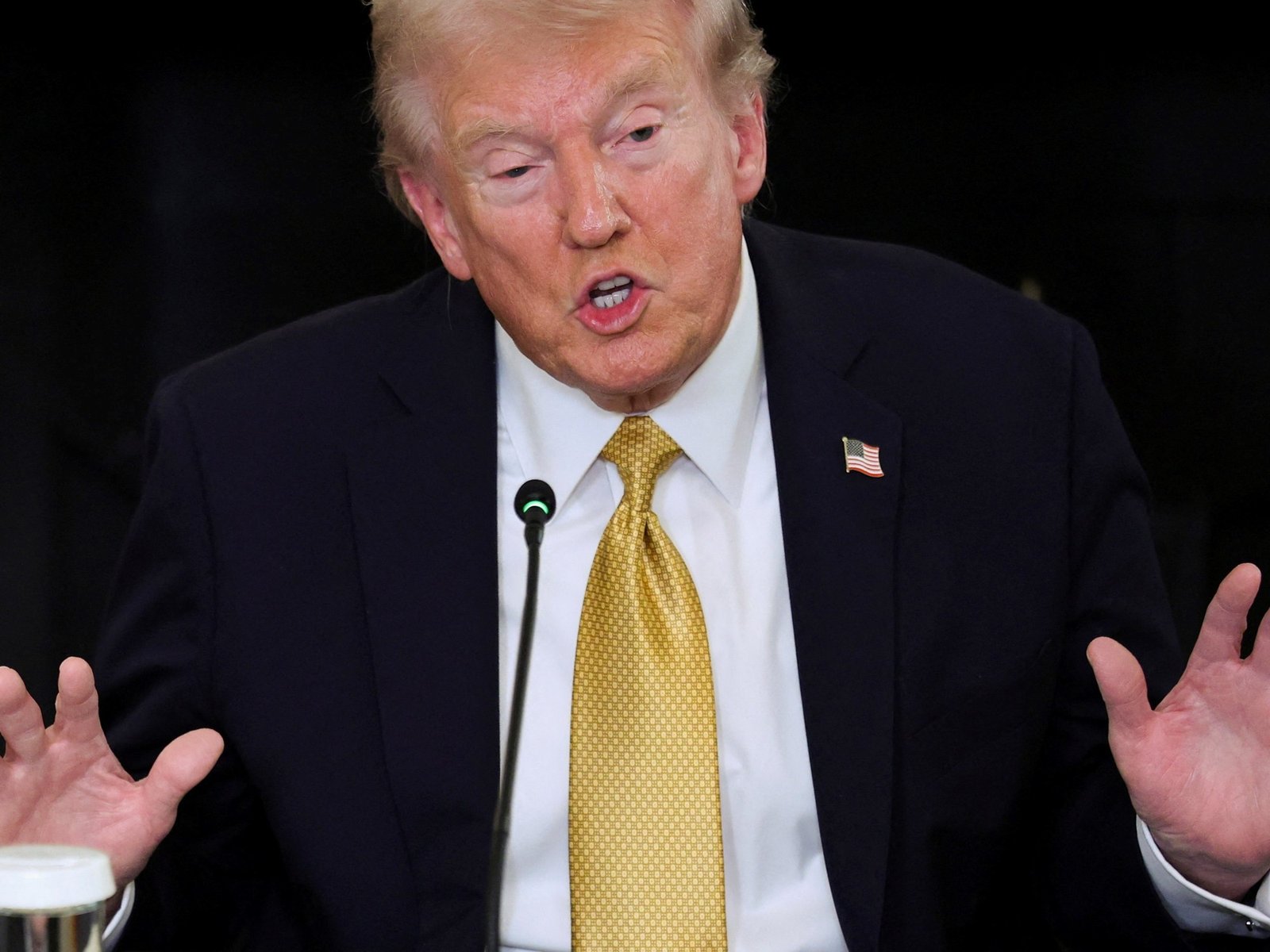
China está utilizando a Venezuela para el tráfico de fentanilo», denunció hoy Donald Trump -aunque sin pruebas- en una afirmación durante una mesa redonda sobre la lucha contra los carteles de la droga y el tráfico de personas en la Casa Blanca. «Pronto veremos acciones en tierra en Venezuela», declaró al abrir la mesa redonda.
Trump anunció que su primera pregunta a Xi Jinping en su próximo encuentro la próxima semana se centrará precisamente en el fentanilo, por el cual su administración ha impuesto aranceles a Beijing.
Hasta ahora, Estados Unidos ha llevado a cabo operaciones marítimas contra supuestas embarcaciones de narcotraficantes en aguas internacionales.
En tanto, al menos un bombardero B-1B estadounidense sobrevoló el mar Caribe frente a la costa de Venezuela, según datos de seguimiento de vuelos. Se trata de la segunda demostración de fuerza de aeronaves militares estadounidenses en una semana.
El vuelo del bombardero —que el presidente Trump posteriormente afirmó falsamente que nunca ocurrió— se produce mientras Washington continúa una campaña militar contra presuntos narcotraficantes en la región, desplegando fuerzas que han suscitado temores en Caracas de que el objetivo final sea un cambio de régimen.
Datos del sitio web de seguimiento Flightradar24 mostraron un B-1B volando hacia la costa venezolana el miércoles por la tarde antes de revertir su rumbo y dirigirse al norte, tras lo cual desapareció de la vista.
Al ser preguntado en un evento en la Casa Blanca sobre los informes de que Estados Unidos había enviado B-1B cerca de Venezuela, Trump respondió que «eso es falso» y añadió que Estados Unidos «no está contento con Venezuela por muchas razones».
Video
Dos muertos tras el ataque de EE.UU. contra otro supuesto barco con drogas.
El último vuelo tuvo lugar aproximadamente una semana después de que bombarderos B-52 estadounidenses sobrevolaran la costa venezolana durante varias horas.
«No creo que vayamos a pedir una declaración de guerra contra los cárteles de la droga«, dijo Donald Trump en respuesta a una pregunta sobre si no sería más fácil hacer tal declaración dadas las continuas redadas a embarcaciones de presuntos narcotraficantes.
Las operaciones ahora se abrieron también al Pacífico, cerca de las costas de Colombia, donde militares estadounidenses hundieron ayer una lancha presuntamente del narcotráfico con dos personas.
Esto llevó a una dura reacción desde Bogotá. El presidente colombiano Gustavo Petro acusó a Estados Unidos de cometer «ejecuciones extrajudiciales» como parte de sus operaciones militares en el Caribe y en el Pacífico para frenar el narcotráfico en estas rutas.
«Este tipo de maniobras violan el derecho internacional y constituyen ejecuciones extrajudiciales, ya sean traficantes o desconocidos», declaró Petro en rueda de prensa. «En ambos casos, esto representa un uso desproporcionado de la fuerza, prohibido por el derecho internacional humanitario», añadió.
El presidente Nicolás Maduro reveló que Venezuela cuenta con 5.000 misiles tierra-aire portátiles rusos para contrarrestar el despliegue de las fuerzas estadounidenses en el Caribe.
Washington ha desplegado aviones de combate furtivos y buques de la Armada en el Caribe como parte de lo que denomina esfuerzos antinarcóticos, y ha destruido al menos ocho embarcaciones que, según afirma, contrabandeaban drogas desde Venezuela hacia Estados Unidos
El ministro de Defensa de Venezuela dijo que cualquier operación de la CIA contra su país «fracasará», luego que Trump autorizara operaciones de inteligencia contra objetivos del chavismo.
Estados Unidos desplegó en el Caribe una flotilla de destructores, un submarino y barcos con fuerzas especiales para operaciones militares que llevaron al bombardeo de lanchas «narcoterroristas» procedentes de Venezuela.
Venezuela asegura no obstante que se trata de un plan para derrocar al presidente Nicolás Maduro. Trump autorizó la semana pasada las operaciones encubiertas.
«Sabemos que la CIA está presente no solamente en Venezuela, sino en todas partes del mundo», dijo el ministro Vladimir Padrino. «Podrán meter no sé cuantos cuerpos adscritos a la CIA en operaciones encubiertas desde cualquier flanco de la nación y cualquier intento fracasará».
Padrino supervisó una nueva ronda de ejercicios militares en estados costeros de Venezuela.
INTERNACIONAL
Grassley releases memo showing DOJ ‘unleashed unchecked government power’ on Trump associates
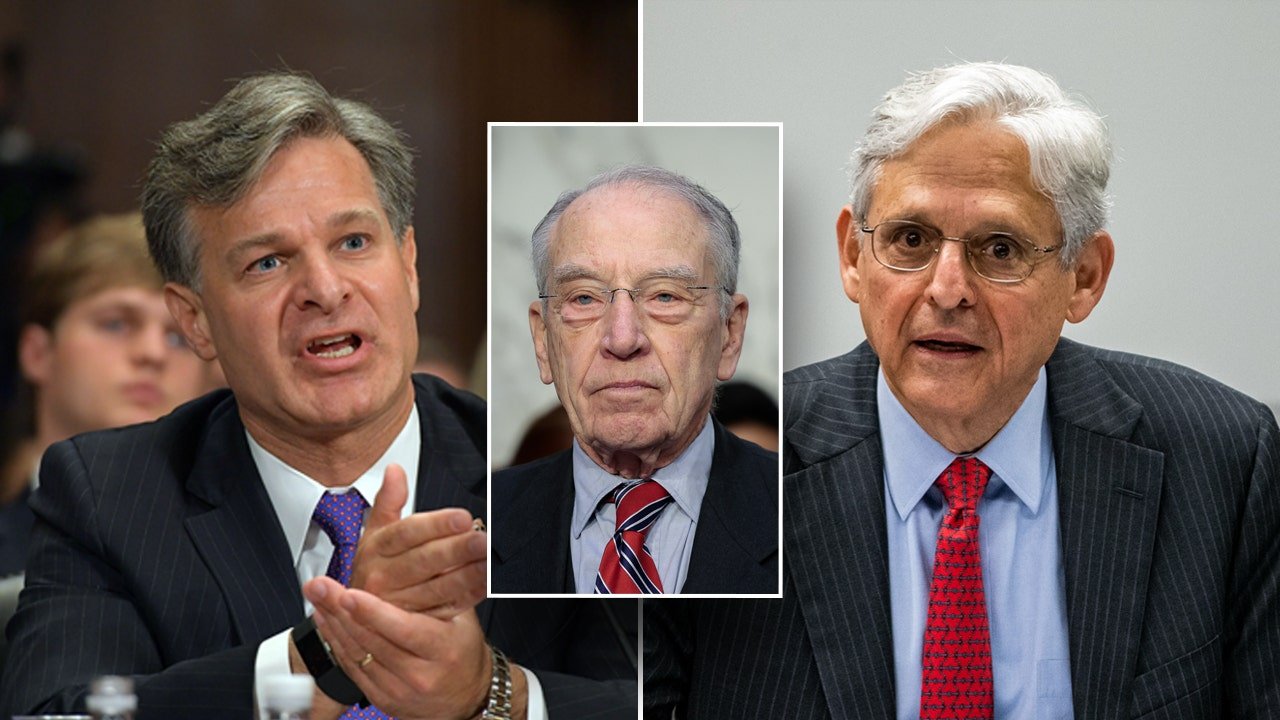
NEWYou can now listen to Fox News articles!
Sen. Chuck Grassley, R-Iowa, on Thursday released an April 2022 Justice Department memo showing then-Attorney General Merrick Garland, then-Deputy Attorney General Lisa Monaco, and then-FBI Director Christopher Wray personally approved an FBI investigation into alleged efforts by Trump campaign associates to obstruct Congress’ certification of the 2020 election.
Grassley posted the four-page memorandum on X, saying it proves top Biden administration officials «personally approved» the case — which he referred to as «Arctic Frost» — and that it «unleashed unchecked government power at the highest levels.»
The Iowa Republican added, «My oversight will continue.»
The April 2022 memo, signed by Garland, Monaco, and Wray, authorized the FBI’s Washington Field Office to open what the bureau designated a «Sensitive Investigative Matter.» The document details the FBI’s request to examine whether individuals connected to Donald Trump’s 2020 campaign conspired to obstruct Congress’ certification of the Electoral College on Jan. 6, 2021.
TOP GOP SENATOR DEMANDS PROBE INTO WHETHER JACK SMITH ‘UNLAWFULLY’ TRIED TO INFLUENCE 2024 ELECTION
«Following the 2020 Presidential and Vice Presidential election, in an apparent effort to obstruct Congress’s certification of Electoral College, fraudulent certificates of electors’ votes were submitted to the Archivist of the United States, purporting to represent the actual elector votes from the states of Arizona, Georgia, Michigan, Nevada, and Wisconsin,» the executive summary reads. «Open source reporting and public statements made by individuals closely associated with Donald J. Trump, Inc. (Trump Campaign) present an articulable factual basis indicating the existence of a federal crime, and thus the FBI seeks to open a full investigation.
«Because this investigation involves a SIM as set forth in the Department of Justice memorandum dated February 5, 2020, entitled ‘Additional Requirements for Opening of Certain Sensitive Investigations’ (DOJ Memo), your authorization is required before WFO may initiate this full investigation,» the document continued.
Monaco wrote at the bottom of the document, «Merrick- I recommend you approve,» before initialing and dating it 4/5/22. Garland ultimately signed off on the investigation on the same day.
DEM REP DEFENDS DOJ OBTAINING GOP SENATOR CALL RECORDS IN 2023: ‘YOU WEREN’T SURVEILLED’
Sen. Chuck Grassley released a memo from former FBI Director Christopher Wray to former Attorney General Merrick Garland to open an investigation into the Trump Campaign in April 2022, for allegedly attempting to interfere with Congress’ certification of the 2020 election. (Samuel Corum-Pool, Anna Moneymaker and Anna Moneymaker via Getty Images)
The authorization came more than a year after the Jan. 6, 2021, Capitol riot and months before now-former Special Counsel Jack Smith was appointed to oversee related investigations. The memo appears to document an early stage of the Justice Department’s examination of the so-called «fake electors» effort that became a focus of Smith’s probe.
In 2023, Smith subpoenaed phone records belonging to eight Republican senators and one House member, covering a four-day period — Jan. 4 to Jan. 7, 2021 — to examine call activity around the Capitol riot. The subpoenas did not seek call content but instead listed numbers, dates and durations.
The targeted senators included Republican Sens. Marsha Blackburn of Tennessee, Josh Hawley of Missouri and Lindsey Graham of South Carolina.
FBI FIRES AGENTS, DISMANTLES CORRUPTION SQUAD AFTER PROBE UNVEILS MONITORING OF GOP SENATORS, PATEL SAYS
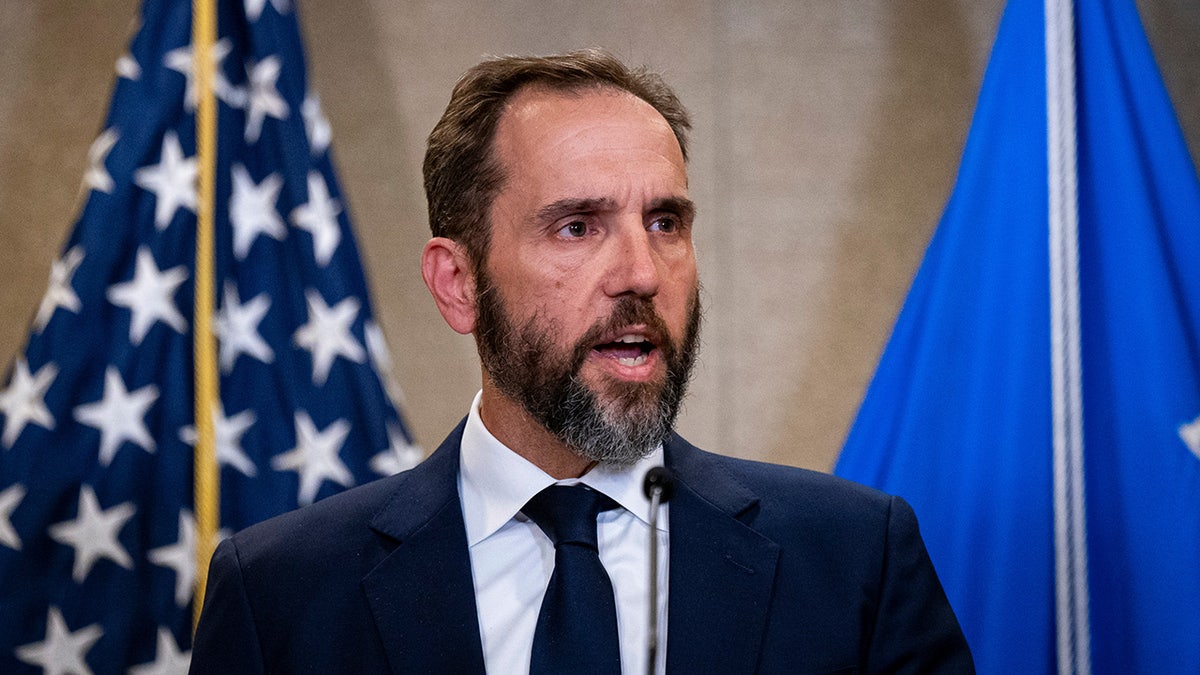
Jack Smith, U.S. special counsel, speaks during a news conference in Washington, D.C., on Tuesday, Aug. 1, 2023. (Al Drago/Bloomberg via Getty Images)
In addition to the eight senators, Sen. Ted Cruz, R-Texas, told Fox News’ Sean Hannity Tuesday that he recently discovered Smith also attempted to subpoena his toll records but that his phone company, AT&T, did not hand them over.
Smith said the records were narrowly tailored and «entirely proper,» adding they were meant to support his investigation into Trump’s alleged efforts to subvert the 2020 election results.
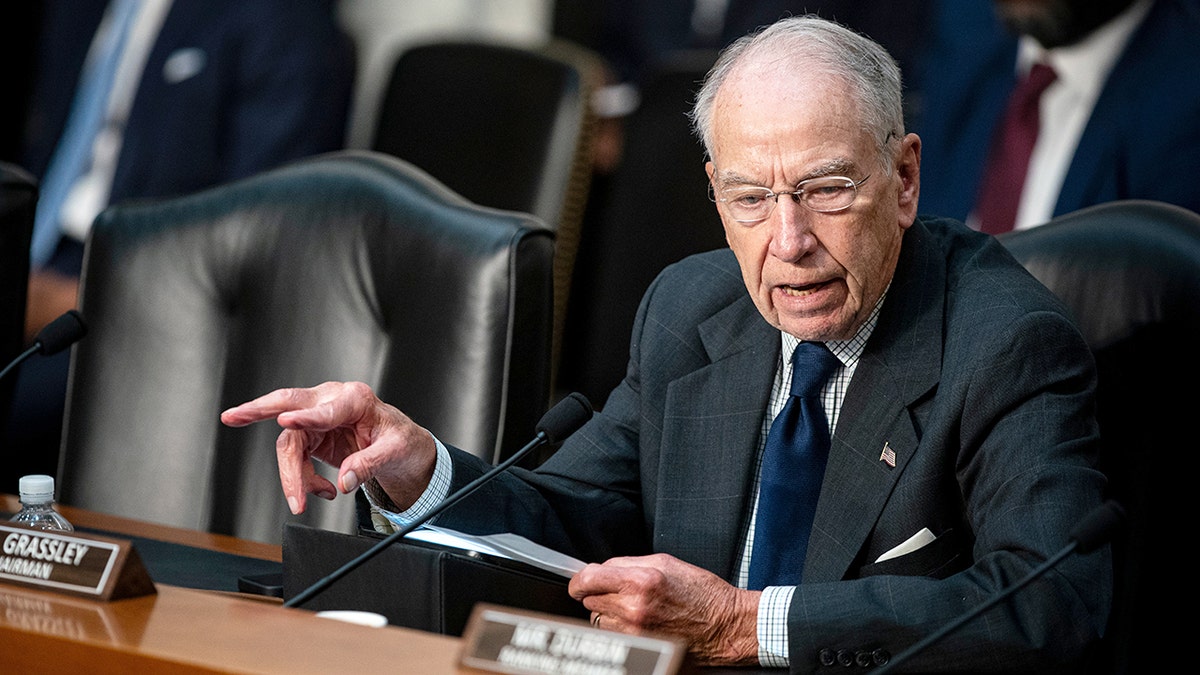
Senator Chuck Grassley, a Republican from Iowa and chairman of the Senate Judiciary Committee, speaks during a hearing in Washington, DC, US, on Tuesday, Sept. 16, 2025 (Al Drago/Bloomberg via Getty Images)
His lawyers wrote to Grassley, saying the subpoenas complied with Justice Department policy and were routine.
Republicans have broadly claimed they were inappropriately spied on and compared Arctic Frost to the Watergate scandal. Smith’s lawyers emphasized the normalcy of seeking phone records and said public officials are not immune from investigation.
CLICK HERE TO DOWNLOAD THE FOX NEWS APP
Smith’s attorneys also disputed accusations from FBI Director Kash Patel that the subpoenas were hidden, noting the requests were referenced in a footnote of Smith’s final report and shared with Trump’s defense team in discovery.
Fox News Digital’s Ashley Oliver contributed to this report.
chuck grassley,justice department,fbi,donald trump,senate,congress

 DEPORTE2 días ago
DEPORTE2 días agoUniversidad de Chile vs. Lanús, por la Copa Sudamericana: día, horario y cómo verlo por TV

 CHIMENTOS2 días ago
CHIMENTOS2 días agoAdabel Guerrero confesó de qué famosa está enamorada y que le encantaría tener relaciones: «La China Suárez me sorprendió con su belleza»

 ECONOMIA3 días ago
ECONOMIA3 días agoScott Bessent oficializó el swap con la Argentina y afirmó: “No queremos otro Estado fallido en América Latina”

